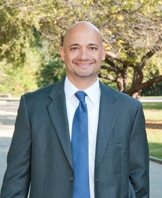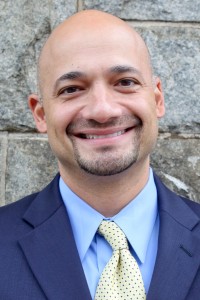Stop SB 458, Georgia’s Anti-DREAM Act

 By Jerry Gonzalez, Executive Director of GALEO
By Jerry Gonzalez, Executive Director of GALEO
Matters concerning the prosperity and future of our state and those concerning children should be absolutely void of political theatrics. Unfortunately, some Georgia legislators have opted for political theatrics by supporting SB 458, Georgia’s anti-DREAM Act, a legislative initiative that would ban access to higher education to all undocumented students at all public colleges and universities. This is a bill that solves nothing and will cause many serious problems. SB 458 will result in the bullying and intimidation of Georgia’s most precious resource: our children, specifically immigrant youth.
Currently, undocumented students in Georgia are banned from attending the five most competitive public universities in the state — including the University of Georgia. The Georgia Board of Regents passed this policy in 2010 as a result of concerns about undocumented students taking away seats from U.S. citizens and legal immigrants. The Board of Regents has stood behind this policy and firmly opposed both SB 458 and HB 59. Furthermore, the Board of Regents has confirmed that undocumented students pay out-of-state tuition, which more than fully funds students’ expenses. It should also be noted that Chancellor Huckaby stated in January that undocumented students are less than one tenth of one percent of the 318,000 students in our public universities.
Immigrant youth are not taking seats away from anyone and these students are paying more than their fair share for their education.
Georgia’s reputation as an anti-immigrant state has caused it to suffer. First, the University of Georgia’s football team lost a talented and highly sought after recruit because of its current restrictive policy. Chester Brown, a three-star, 340-pound guard from Samoa was looking forward to joining the UGA football team and had gotten a bulldog tattoo — but he could not meet the new documentation requirements imposed by the Board of Regents. Secondly, the American Education Research Association recently decided to move its 2013 conference from Atlanta to San Francisco because of our state’s new immigration law, HB 87. The conference could have attracted 15,000 educators and could have generated $25M directly from the convention and an additional $20-50M from tourism. SB 458 is a bill that would further make Georgia an outlier. Most states are moving towards in-state tuition or sticking to out-of-state tuition for undocumented students. Georgia would be one of only three states to ban all access to higher education for undocumented students, joining the ranks of Alabama and South Carolina.
The effects of this legislative proposal will do far more than restrict undocumented students from pursing higher education. We must all strive to ensure greater access to higher education for the success of our nation and our state. Governor Nathan Deal recently stated, “To have a successful future in Georgia, and remain competitive nationwide and globally, we have to have an educated workforce, and that means we need to do a better job getting people into college.” SB458, and similar measures, diminishes our state’s ability to compete in a global market and should not be tolerated.
This type of initiative shatters immigrant youth’s dreams and subjects them to further ridicule and bullying at their K-12 schools. Toying with young peoples’ lives can have devastating effects. Joaquin Luna, Jr. was a bright student from Mission, Texas. He had put all his ducks in a row to become a civil engineer. Unfortunately, he knew his options were very limited because he was undocumented. Joaquin, like many other undocumented students, had been brought to the country as an infant. On November 25, 2011, the day after Thanksgiving, consumed by grief and the realization of his undocumented status, Joaquin took his own life. The world lost a son, brother, student, classmate, friend, and future civil engineer. At a time when our nation needs to be harvesting talent in engineering and science careers, this young student took his life because of obstacles he saw as insurmountable.
In 2010, the Georgia General Assembly passed SB 250, an anti-bullying bill to protect Georgia’s most precious resource: our children. The bill promises to protect children against “any intentional written, verbal, or physical act, which a reasonable person would perceive as being intended to threaten, harass, or intimidate that…has the effect of substantially interfering with a student’s education…is so severe, persistent, or pervasive that it creates an intimidating or threatening educational environment.” During my recent testimony to Georgia Senators, I asked them to consider their actions very seriously and to weigh the impact it would have on immigrant youth across our state. SB 458 makes Georgia’s elected officials into bullies because of the intentional interference with an immigrant student’s ability to continue their educational progression. SB458 would rob immigrant student’s ability to see higher education as a viable option for their future. Despite the fact that we will see these immigrant youth become U.S. citizens one day with growing support for the DREAM Act, SB458 would mark Georgia in history as Alabama was marked by George Wallace blocking the entrance of a school.
Georgia’s SB 458 is an open act of bullying targeting immigrant youth. We all know the devastating effects we have seen when young people are bullied by their peers, or worse by adults. We must take a stand against this type of extreme hostility and the bullies perpetuating it— even if the bully is a Georgia State Senator Barry Loudermilk (R). Taking a stand against bullies is not always popular, but it is the right thing to do. For the sake of our immigrant children in our state, I urge you to take a stand against SB458 and urge your Georgia Senators to vote NO.
To contact your Georgia State Senator and to learn more about SB458, please follow this link.
Jerry Gonzalez is Executive Director of GALEO, the Georgia Association of Latino Elected Officials, dedicated towards greater civic engagement and leadership development of the Latino community in Georgia.
[Photo By GALEO]
